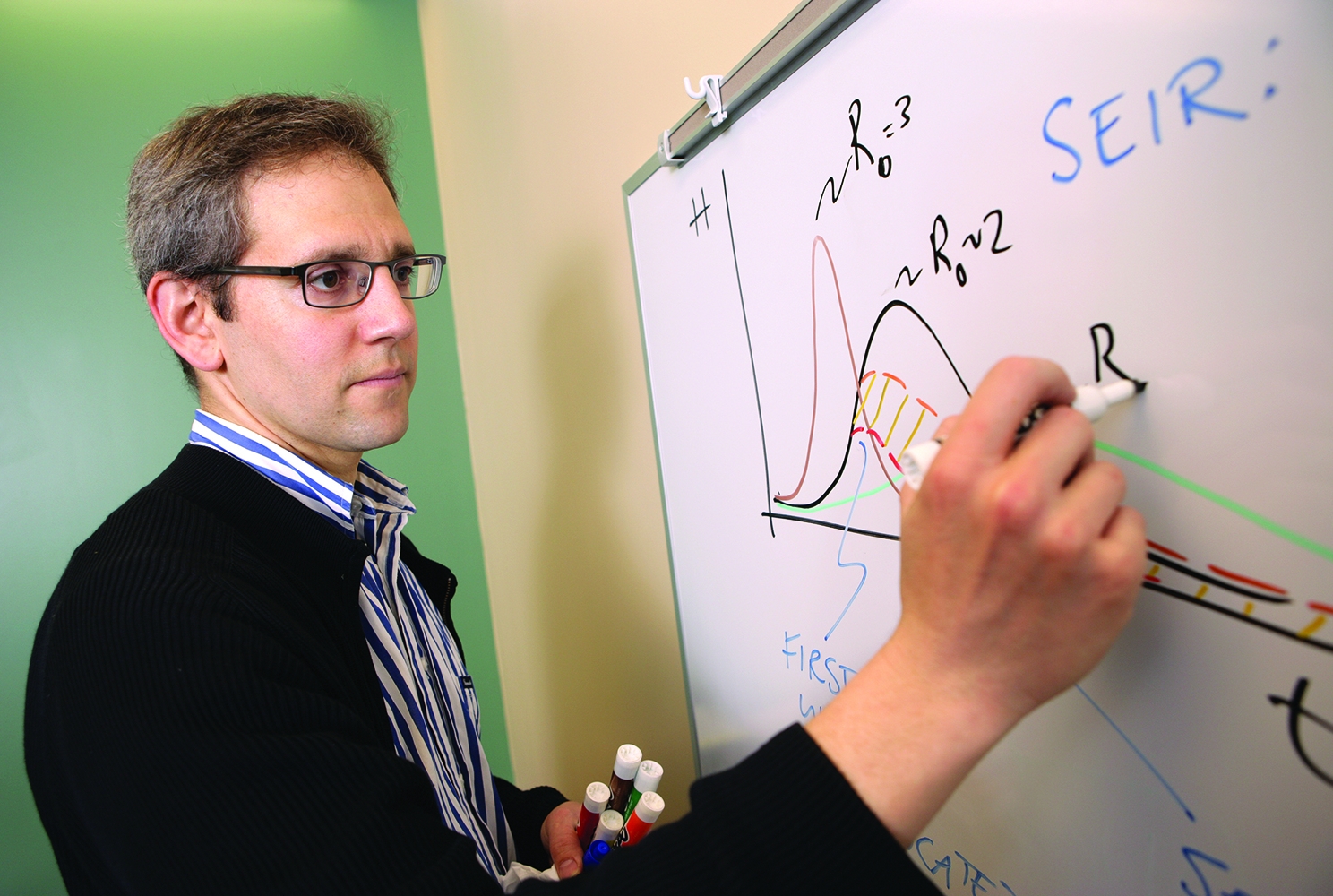Goal Is to Strengthen Hospitals' Ability to Protect Communities During Public Health Disasters
DHHS-Funded Initiative Led by Weill Cornell Medical College's Dr. Nathaniel Hupert Through Cornell University's Institute for Disease and Disaster Preparedness
NEW YORK (Dec. 16, 2010) — With the publication of the nation's first comprehensive, federally funded guide to hospital emergency preparedness exercise development, Dr. Nathaniel Hupert at Weill Cornell Medical College and his collaborators have provided a new toolset for strengthening hospitals' ability to protect communities nationwide against public health disasters, such as creating care centers during an influenza pandemic or treating casualties in the wake of a bioterrorism attack.
The guidebook and accompanying atlas of resources were prepared through Cornell University's Institute for Disease and Disaster Preparedness for the U.S. Department of Health and Human Services' (DHHS) Agency for Healthcare Research and Quality (AHRQ), with funding from the DHHS Office of the Assistant Secretary for Preparedness and Response (ASPR). Electronic versions are now available on the AHRQ website at www.ahrq.gov/prep/hospex.htm.
"This project provides much-needed material assistance for the often unheralded but critical job of making sure our nation's hospitals are prepared for the unexpected," says principal investigator Dr. Nathaniel Hupert, associate professor of public health and medicine at Weill Cornell Medical College and co-director of the Cornell Institute for Disease and Disaster Preparedness. "This guide is a single point of reference to help hospital preparedness exercise coordinators meet the many requirements, rules and regulations, both federal and accreditation-related, pertaining to the planning, conduct and evaluation of hospital emergency preparedness exercises."
"The work of Dr. Hupert and his colleagues in planning for scenarios that no one wants to imagine continues to be an essential way of assuring the public's health," says Dr. Alvin I. Mushlin, professor and chairman of the Department of Public Health at Weill Cornell Medical College. "Hospitals are important components of our public health system. Their guide provides resources to help hospitals design, conduct and evaluate their own emergency preparedness exercises in order to improve their response capabilities."
In 2008, AHRQ and the Office of the Assistant Secretary for Preparedness and Response contracted with Weill Cornell Medical College to conduct a one-year, comprehensive assessment of resources available to promote the development, conduct and evaluation of hospital preparedness exercises in the United States. The Weill Cornell research team — including Research Associate Melissa Cheung, Assistant Professor of Public Health Dr. Wei Xiong, Weill Cornell medical student Anh-Thu Vu, and legal expert Doris Varlese — evaluated more than 400 preparedness exercise documents and synthesized the multiple national requirements for hospital emergency exercises into a full-length guidebook and quick-reference pocket guide, along with a structured, searchable atlas of resources and tools. Ten Weill Cornell medical students helped perform the structured critical analysis of the exercise materials, and the resulting documents were reviewed in five states (Nebraska, Georgia, New York, California, and Washington) with input from more than 50 hospital emergency preparedness professionals, including representatives from NewYork-Presbyterian Hospital/Weill Cornell Medical Center.
Weill Cornell medical student research assistants included Elizabeth Foley, Benjamin Frank, Elizabeth Franzek, Marta Galecki, Sarah Haseltine, Vishal Hegde, Eric Heintz, Jad Husseini, Marilyn Michelow and David Nissan.
Cornell Institute for Disease and Disaster Preparedness
The Cornell Institute for Disease and Disaster Preparedness (IDDP), founded in 2005, is a joint venture of the Weill Cornell Medical College Department of Public Health and the Department of Operations Research and Information Engineering in the Cornell University College of Engineering. The Institute's vision is to build the nation's leading research and education center in the field of public health response logistics —defined as the systematic study of a set of physical and human infrastructures, materials and supplies, transport resources, information and communication systems, business processes, decision support systems, and command and control systems required to respond quickly and appropriately to health crises. The Institute pursues this vision through three interlinked goals: primary research, education of the nation's next generation of engineers and public health practitioners/researchers, and outreach to key players at the local, regional and national levels. For more information, visit weill.cornell.edu/publichealth/research/institute.html.
Weill Cornell Medical College
Weill Cornell Medical College, Cornell University's medical school located in New York City, is committed to excellence in research, teaching, patient care and the advancement of the art and science of medicine, locally, nationally and globally. Physicians and scientists of Weill Cornell Medical College are engaged in cutting-edge research from bench to bedside, aimed at unlocking mysteries of the human body in health and sickness and toward developing new treatments and prevention strategies. In its commitment to global health and education, Weill Cornell has a strong presence in places such as Qatar, Tanzania, Haiti, Brazil, Austria and Turkey. Through the historic Weill Cornell Medical College in Qatar, Cornell University is the first in the U.S. to offer a M.D. degree overseas. Weill Cornell is the birthplace of many medical advances — including the development of the Pap test for cervical cancer, the synthesis of penicillin, the first successful embryo-biopsy pregnancy and birth in the U.S., the first clinical trial of gene therapy for Parkinson's disease, and most recently, the world's first successful use of deep brain stimulation to treat a minimally conscious brain-injured patient. Weill Cornell Medical College is affiliated with NewYork-Presbyterian Hospital, where its faculty provides comprehensive patient care at NewYork-Presbyterian Hospital/Weill Cornell Medical Center. The Medical College is also affiliated with the Methodist Hospital in Houston. For more information, visit weill.cornell.edu.
Linda Kamateh
lib9027@med.cornell.edu

